Antique Swiss Playing Cards, c.1530
The Swiss national suit system of shields, acorns, hawkbells and flowers originated sometime during the fifteenth century.
The Swiss national suit system of shields, acorns, hawkbells and flowers originated sometime during the fifteenth century. The playing cards shown here were originally made in Basel, c.1530. They were discovered inside a book cover and reproduced in 1998 to celebrate the 20th anniversary of Cartophilia Helvetica. A distinguishing feature is the "banner 10" cards, which are now more or less counted as an ace. The kings are seated. The same designs can be seen three hundred years later in the cards of David Hurter, c.1830.
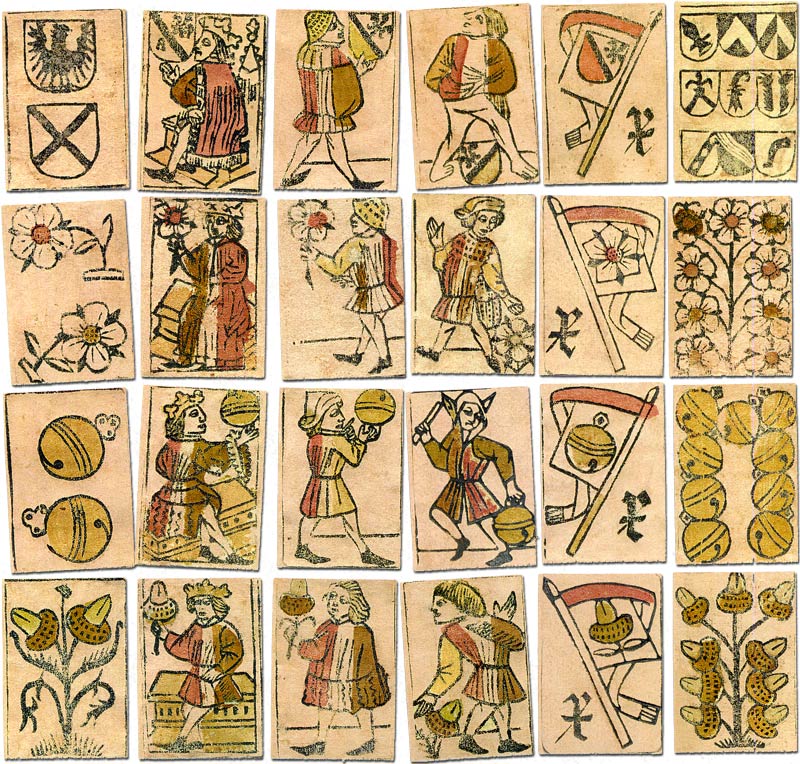
Above: cards from reprint by AGM Müller in 1998.
A second set of antique Swiss playing cards was discovered in May 2011 at Nidwaldner State Archives inside the covers of an old book during restoration. The cards were ‘reconstructed’ into a reproduction pack of 48 cards.
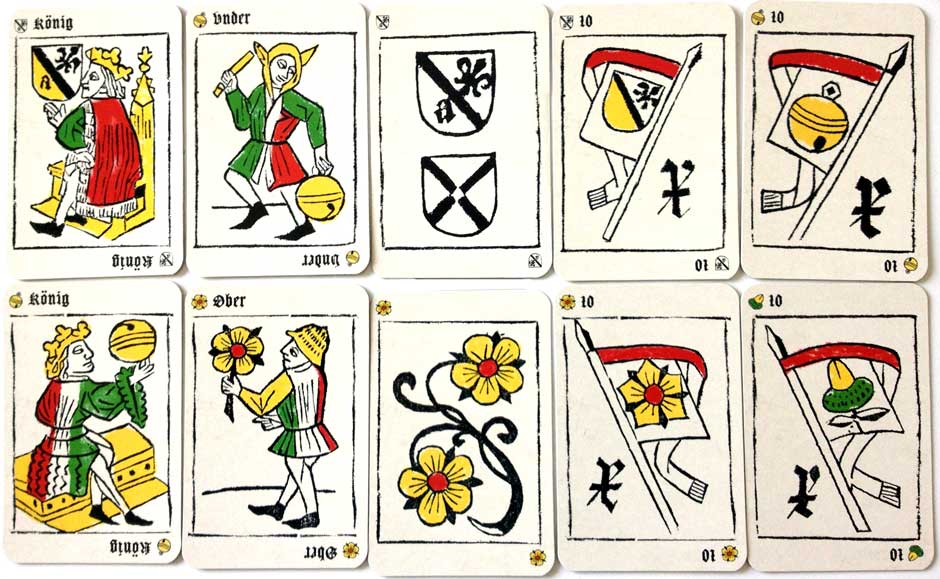
Above: cards from a reproduction by Druckerei Odermatt (www.dod.ch). Image courtesy Bert Kaspersma.
By Simon Wintle
Spain • Member since February 01, 1996 • Contact
I am the founder of The World of Playing Cards (est. 1996), a website dedicated to the history, artistry and cultural significance of playing cards and tarot. Over the years I have researched various areas of the subject, acquired and traded collections and contributed as a committee member of the IPCS and graphics editor of The Playing-Card journal. Having lived in Chile, England, Wales, and now Spain, these experiences have shaped my work and passion for playing cards. Amongst my achievements is producing a limited-edition replica of a 17th-century English pack using woodblocks and stencils—a labour of love. Today, the World of Playing Cards is a global collaborative project, with my son Adam serving as the technical driving force behind its development. His innovative efforts have helped shape the site into the thriving hub it is today. You are warmly invited to become a contributor and share your enthusiasm.

Related Articles
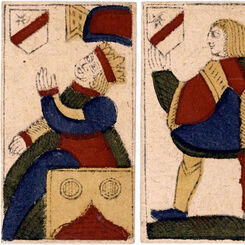
Swiss playing cards by Iehan Hemau
17th century Swiss-suited playing cards by Iehan Hemau of Épinal.
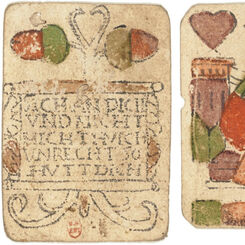
Early German playing cards
Some early examples of popular German playing cards from the XV and XVI centuries.
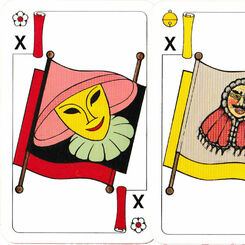
Schwyzer Fasnachts-Jass
Traditional carnival figures from the Swiss canton Schwyz, as interpreted by the artist Léon Schnyde...
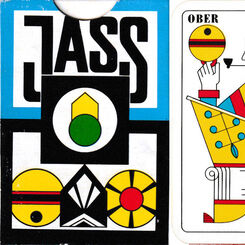
Mini Jass
Pocket-size cards with modern designs for playing the Swiss national card game, Jass.
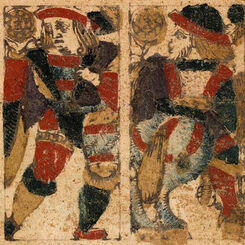
Toledo, 1584
Archaic Spanish-suited deck with 48 cards made in Toledo in 1584.
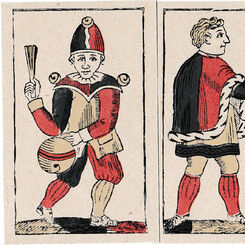
Johannes Müller c.1840
Facsimile edition of Swiss suited deck first published by Johannes Müller in c.1840.
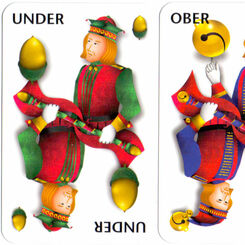
Modern Swiss-German Pattern
Modern Swiss-German Pattern by AGMüller, c.2000.
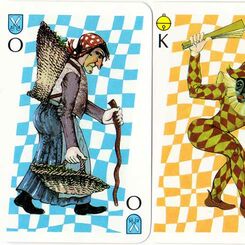
Krienser Fasnachts-Jass 1988
The Krienser Fasnachts-Jass deck was designed and published by Léon Schnyder from Kriens for the 198...

Malta
The so-called ‘Dragon Cards’, with winged monsters on the four Aces, are an enigmatic aspect of earl...
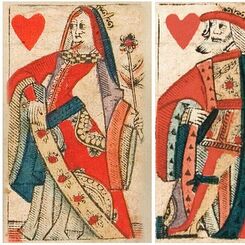
Pierre Marechal
Rouen became an important centre for card-making whose influence extended far afield. Cards from Rou...
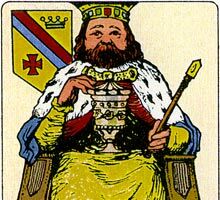
Schweizer Luxus-Jasskarte No.41
The lower and upper knaves are depicted in a vibrant and lively manner, while the enthroned kings ar...
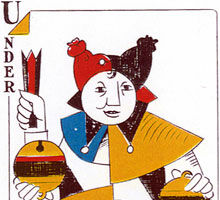
Jass Allemand
Egbert Moehsnang produced this contemporary Swiss-suited, double-ended pack, based on original XV ce...
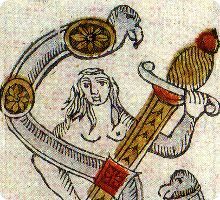
Joan Barbot
Joan Barbot, San Sebastian c.1765-1810.
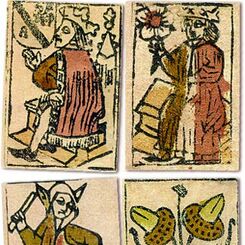
Swiss Playing Cards
The Swiss national suit system of shields, acorns, hawk bells and flowers emerged sometime during th...

David Hurter, Schaffhausen
David Hurter built up a playing card business in Schaffhausen during the 18th century.
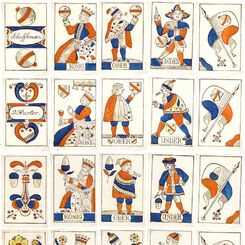
Swiss Playing Cards by David Hurter, c.1830
David Hurter had begun to build up a playing card business in Schaffhausen during the late 18th cent...
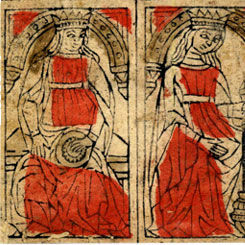
XV Century Italian Playing Cards
Cards from a pack of an early form of north Italian playing cards, with the swords back-to-back and ...
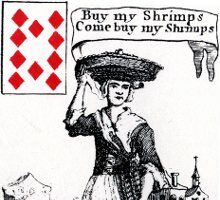
Cries of London
The cards were printed from copper plates, with the red suit symbols being applied later by stencil....
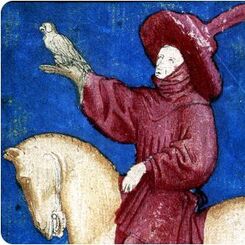
The Princely Hunting pack, c.1440
The Princely Hunting Pack, c.1440/45, is attributed to Konrad Witz and his workshop in Basle.

Playing cards in the Upper Rhine region
Documentary evidence suggests that card playing established itself in Italy in 1376, and then spread...
Most Popular
Our top articles from the past 60 days






















